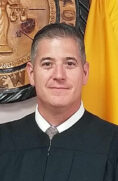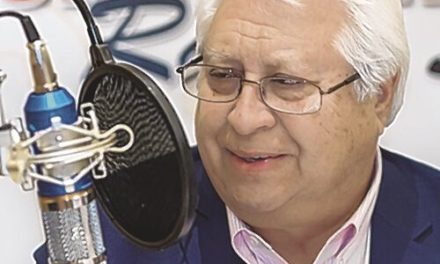I recall an event from about 17 years ago when I was in the Army stationed in the Pentagon and living in Northern Virginia. Our son, John II, was in scouting and one of the requirements for a rank advancement was that he complete a 5-mile hike. The boys planned the event to include the date and location.

Judge John Chavez
On the morning of the scheduled hike it was pouring rain and when we arrived at our meeting location, we were told by the adult leaders that our planned hike location was closed due to the rain. They had another location that they had used in the past and suggested the boys could hike 2 1/2 miles along a trail and then backtrack the same distance.
The older scouts protested; they had hiked that location so much that they did not want to do it again and proposed that they take another route, which would finish at the same place. The adult leadership agreed and off we went.
When we arrived at the location it was noted that some of the new scouts were wearing jeans; the wrong clothes to be hiking, especially in the rain. Since it was a relatively short hike it was agreed to proceed but noted the lesson for future hikes.
A little more than 2 miles into the hike we encountered a stream that, with the rain, had become a fast-flowing river. The adult leaders started planning to cross the river. I had been a good follower up to this point but could not remain silent any longer and simply said, “No!”
I explained that too many things had changed: the location, the splitting of the troop leadership, the weather conditions combined with inappropriate clothing and now a river. The cumulative risk was too high.
The adult leaders rebutted that the boys had to complete the 5 miles in order to meet the minimum requirements. One of the other new parents suggested we could go back to the start point and double back the short distance to make it 5 miles. All agreed and we turned around.
While this may seem an out of place story in a judicial column, the fact is judges witness the consequences of poor decision making every day. We do not always learn the background of the decisions being made but I think we have a good general idea.
A few possible scenarios:
Friends go out to dinner. One person, who drove alone, planned not to drink. One of the group orders a round of drinks. The non-drinking member, after some initial protest not to drink, succumbs to the insistence that “it is only one.” You can probably guess the outcome.
Two individuals go to the store, they are shopping and perhaps one laughingly says to the other, “This is really expensive. We could probably get away with taking it.” The other half-heartedly agrees, and they take the item. Again, the outcome is self-evident.
Every decision we make has consequences. Some good, some bad. In the Army, and over many years, I learned to evaluate risk and planned the implementation of risk reduction measures. One thing I learned was that every time you change a plan you increase risk.
Your mind is really amazing. When confronted with a change of plans, you can better inform your decision to do or not to do something if you take just a minute to think through the consequences. Leadership is important, too. Often it only takes one person to say “no” to a bad idea to embolden others to find their voice, too.
In the drinking and driving scenario, better to stand firm in the decision to not drink or to condition the decision on getting a ride home. Taking that stand might be an example to someone else to do the same.
In the shoplifting scenario, two individuals who might not steal on their own succumbed to “group think” and changed their plan from shopping to stealing. If the second had said “no” or “that’s not such a great idea,” the bad idea likely dies.
Everyday we make thousands of small decisions; what to wear, what to eat, etc. Most have limited consequences. Risk, however, is often cumulative. Leaving to work late incurs risk, going over the speed limit incurs risk, not wearing a seat belt incurs risk and talking on a cell phone while driving incurs risk. These small decisions individually may not have significant risk — combined they do.
The opposite is true, too. Leaving early to work reduces risk, going the speed limit reduces risk, wearing your seat belt reduces risk, limiting cell phone calls while driving reduces risk. We can never remove all risk but everything we do helps.
Please have a safe and happy Fourth of July weekend!

Judge John Chavez, guest columnist
Magistrate Judge John R. Chavez is the magistrate in Belen. He is a native of Valencia County and is a retired U.S. Army colonel.
















